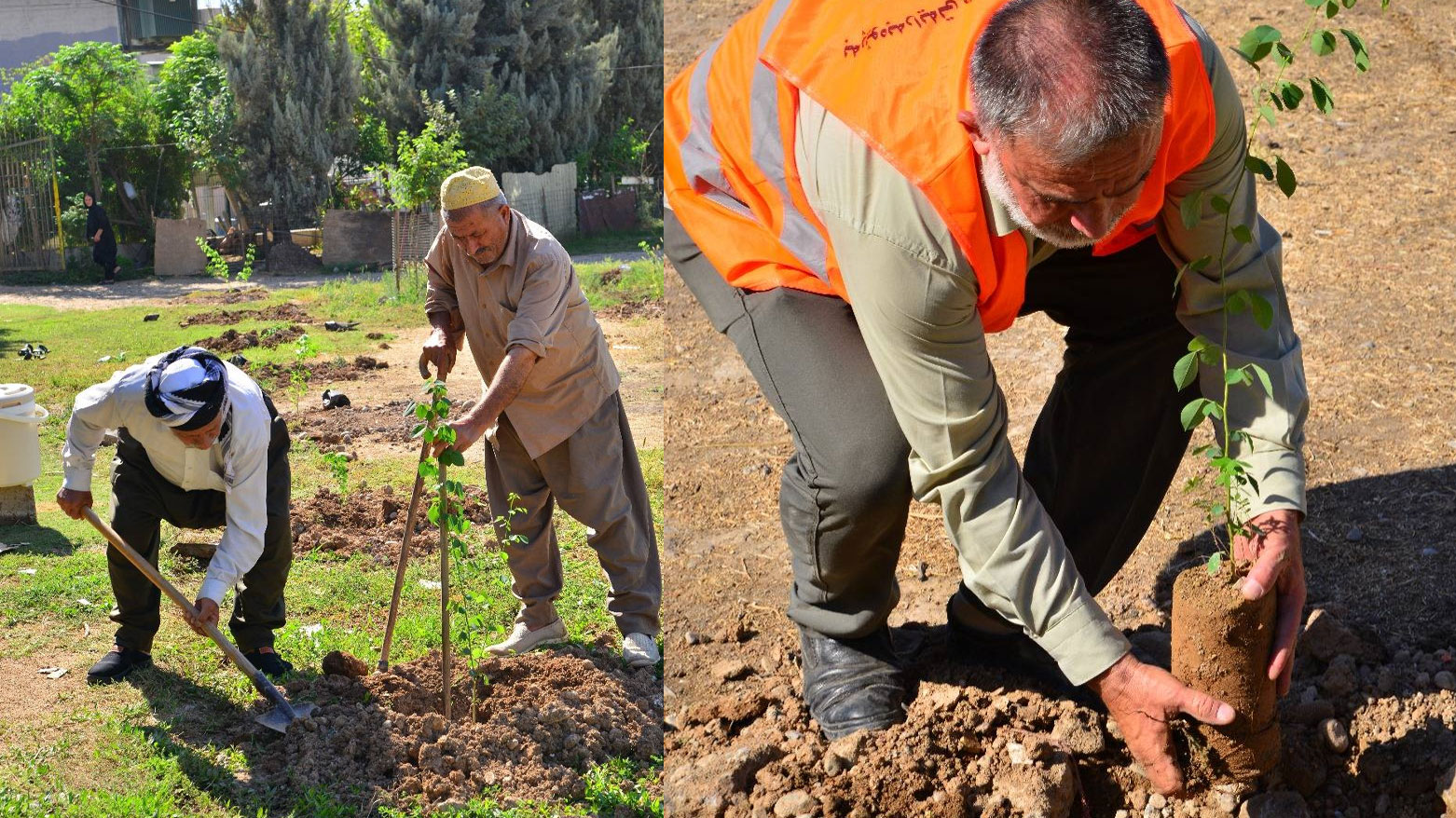Erbil’s Green Expansion Nears Global Standard with Ongoing Citywide Tree-Planting Campaign
Erbil’s Ambitious Tree-Planting Drive and Runaki Project Work Together to Boost Green Spaces and Air Quality

ERBIL (Kurdistan24) — Erbil’s parks and landscaping directorate announced on Tuesday that the city’s ambitious greening campaign is steadily progressing, bringing its overall greenery coverage to nearly 20 percent — a figure approaching the international urban standard of 25 percent.
Rebin Ahmed, Director of Erbil Parks and Landscaping Directorate, told Kurdistan24 that the city’s “Autumn Green Initiative” aims to expand green zones and enhance the city’s aesthetic appeal.
“Since the beginning of September, over 10,000 trees of various species have been planted across Erbil’s six municipalities,” he said.
According to Ahmed, the campaign includes planting diverse tree species in central parks, public places, and main street medians to help improve air quality, beautify the city, and provide natural shade.
He added that the initiative is ongoing and will continue until Erbil reaches the global green space benchmark.
The Erbil Municipality’s official Facebook page shared that on Tuesday alone, more than 250 trees were planted in Hasarok village’s inner forest area and another 300 trees along the central street medians of Hana City Street.
Additionally, 250 more trees were planted around Lawlaw Park near the Perzin residential complex.
In a parallel environmental effort, the Runaki Project is complementing Erbil’s green expansion by significantly improving air quality through a reliable, 24-hour electricity supply.
By reducing dependence on private diesel generators — a major source of urban pollution — the project helps lower emissions and supports the government’s broader environmental vision for a cleaner and healthier Kurdistan Region.
The “Green Erbil” initiative is part of a broader vision by the Erbil Municipality to make the city more sustainable, livable, and environmentally balanced.
Urban planners and environmental advocates have praised the ongoing effort as a vital step toward combating pollution, enhancing public health, and creating a greener urban identity for Kurdistan’s capital.
The Kurdistan Regional Government (KRG) has linked the expansion of green spaces to its broader economic diversification strategy, aiming to boost tourism and generate additional revenue for the region.
By creating more parks, landscaped public areas, and scenic urban spaces across Kurdistan, the government seeks to attract both domestic and international visitors, enhance recreational opportunities, and develop eco-friendly tourism hubs that complement the region’s cultural and historical attractions.
This approach positions environmental sustainability as a key driver of economic growth while improving the quality of life for residents.